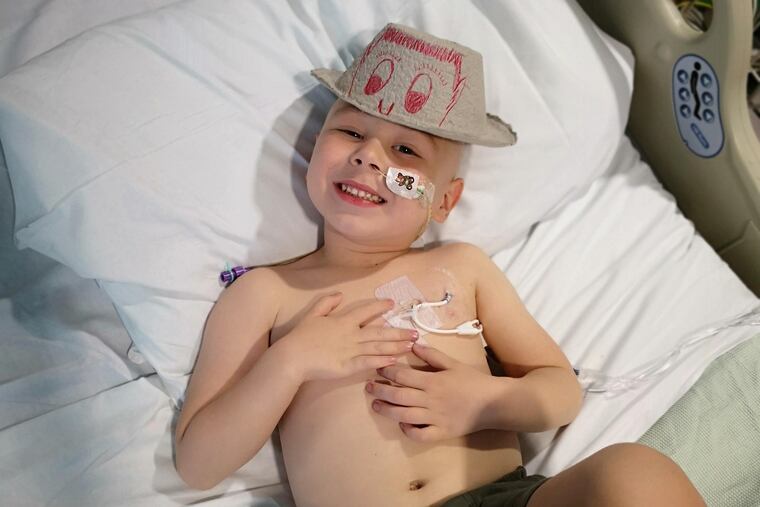With anonymous donation of $130k, British 4-year-old will travel to Philadelphia for T-cell therapy
After receiving more than $130,000 from an anonymous donor, a 4-year-old boy is set to travel from England to Children's Hospital of Philadelphia for treatment of a rare form of leukemia.

After receiving more than $130,000 from an anonymous donor, a 4-year-old boy is set to travel from England to Children's Hospital of Philadelphia for treatment of a rare form of leukemia, the Daily Mail reports.
Zac Oliver was diagnosed in May with a subtype of acute lymphoblastic leukemia (ALL), a type of cancer in which the bone marrow makes too many immature lymphocytes, a type of white blood cell. His parents are hoping to get him the T-cell therapy Kymriah, which was pioneered at CHOP in collaboration with the University of Pennsylvania.
The costly therapy is priced at $475,000 in the U.S., though hospital costs can raise that number to more than $1 million. Zac's mother, Hannah Oliver-Willets, said CHOP has agreed to cover the T-cell therapy and all medical care for $604,000.
The family had been raising money through a crowdfunding website since August. With the new donation, they've reached their goal.
"They have given us a massive gift — the gift of life for Zac, hopefully," Oliver-Willets told the Daily Mail. "But so did everybody else who helped us — the children who emptied their money boxes or sold their flapjacks at school cake sales."
Zac will undergo chemotherapy at the Princess Royal Hospital in Telford and spend a week recuperating at home in Broseley, a small town northwest of Manchester, before traveling to Philadelphia.
About 6,000 youngsters are diagnosed with ALL each year in the U.S. and Europe, and standard treatments — chemo, radiation and stem-cell transplants — cure 85 percent of them. T-cell therapy is typically only offered to children who have exhausted standard treatment options and have relapsed, English authorities said. That's the same as the approved U.S. protocol.
But Zac's parents believe relapse would be a death sentence for him, since he has an ultra-rare, ultra-aggressive subtype of ALL with chromosome alterations called near haploid or hypodiploid. He's expected to relapse by November, Zac's parents said, and they don't want to wait. Due to his specific form of leukemia, treatment itself is often deadly for Zac, because it goes on for so long and does so much damage.
For ALL in general, T-cell therapy has shown stunning effectiveness. In the global clinical trial of 95 youngsters that led to Kymriah's FDA approval in the U.S., 80 percent went into remission, and more than 40 percent were alive a year later. The first child ever treated, Emily Whitehead, 13, of Philipsburg, Pa., remains cancer-free six years after her dramatic rescue.
Still, almost all children who receive the new therapy suffer serious or even life-threatening complications, a result of immune system overstimulation.
In all, Zac's treatment and recovery in Philadelphia would take about four months. Oliver-Willets said the logistics and implications of uprooting the family, including Zac's stepfather and little brother, are still being worked out.
"But we are going to try to get Zac into that tiny percentage that survive and are cured," she told the Inquirer in early October.